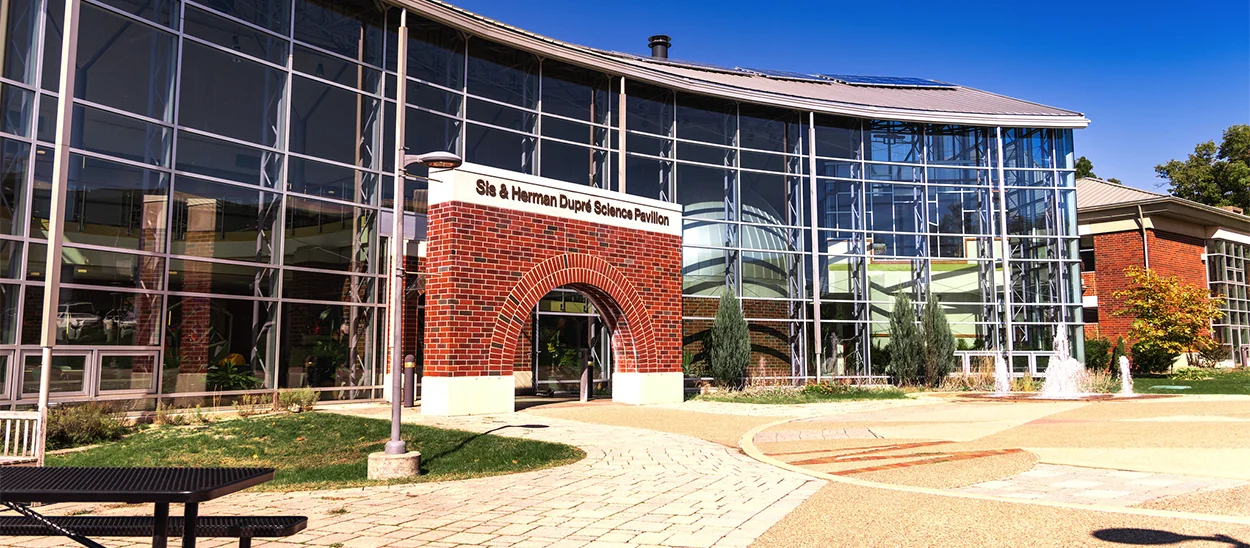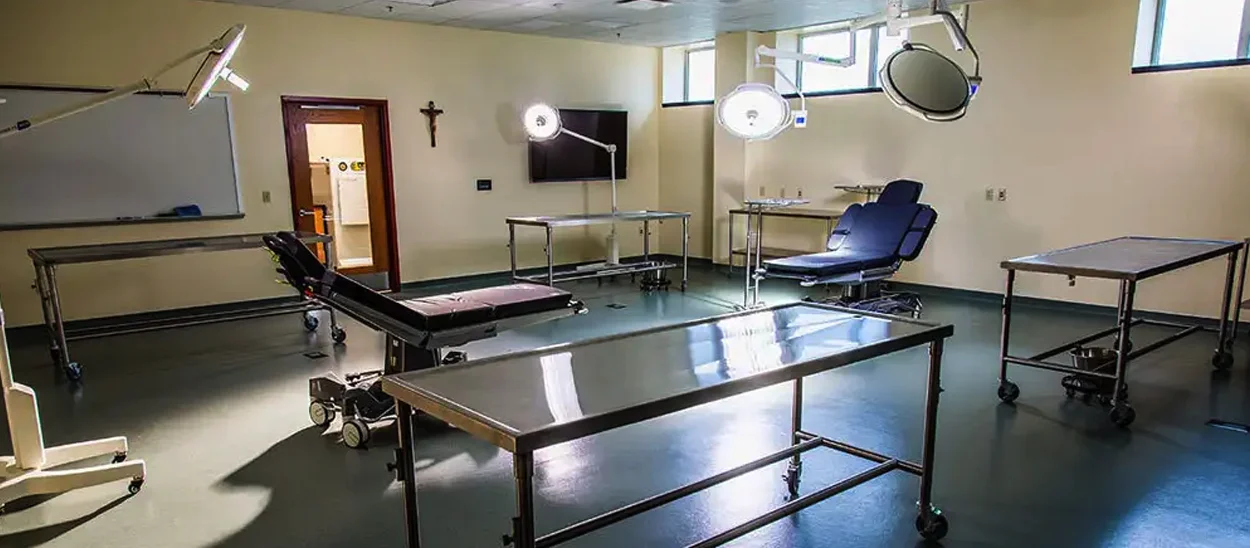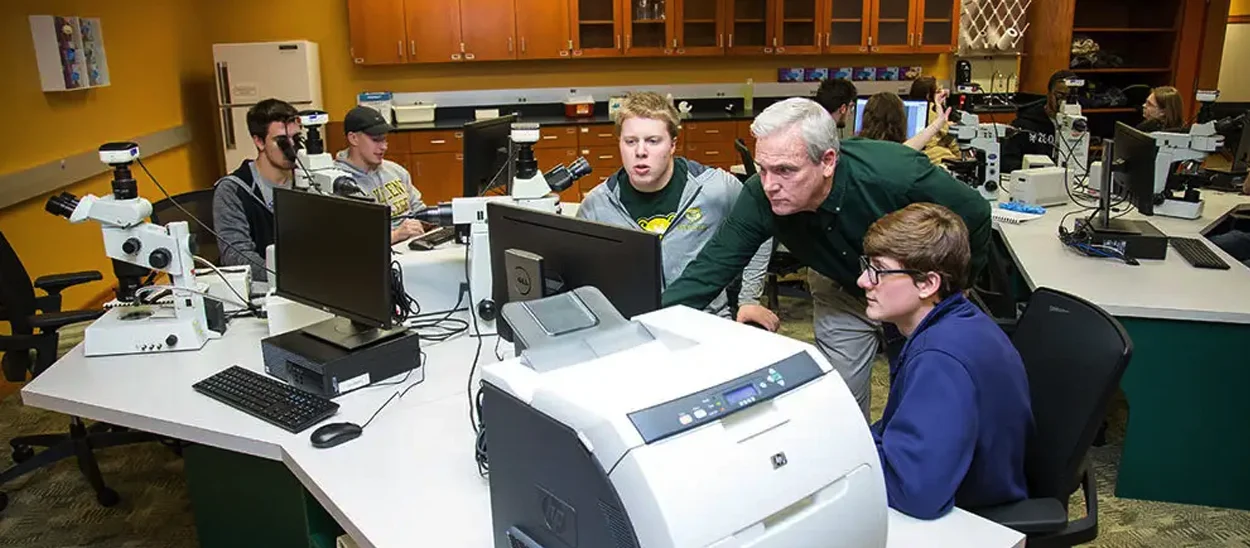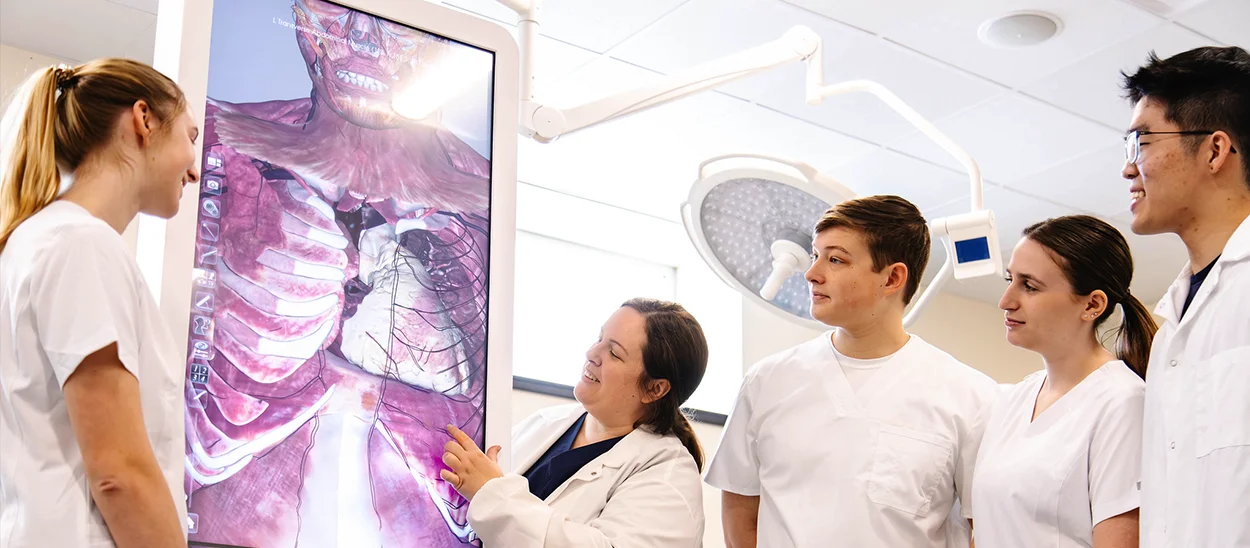Liberal Arts Breathes Life Into the Sciences
Biology majors at Saint Vincent College benefit from exceptional faculty, resources, and an expansive alumni network. Hands-on learning and research opportunities allow our students to apply biological concepts in three concentrations: cellular and molecular biology, organismal biology, and population biology. Beyond mastering laboratory and field techniques, our biology majors develop the critical thinking and communication skills that empower them to excel in healthcare, environmental science, education, research, and beyond. The liberal arts courses help develop well-rounded critical thinkers who make cross-curricular connections, interpreting data with insight and understanding the process behind each discovery.
Bachelor of Arts: The BA degree gives students more flexibility to take additional courses in other areas. Students still concentrate in cellular and molecular biology, organismal biology, or population biology, but may find it easier to double major or minor in programs that are in entirely different fields, like the humanities, foreign language, education, social sciences, or the arts.
Bachelor of Science: Students pursuing the BS degree take more courses in their biology curriculum and, in general, are usually committed in their goal of pursuing professional opportunities or graduate studies within the natural sciences.
Secondary Teaching Certification: Biology majors who minor in education will be prepared to acquire their teaching certification for grades 7-12. Visit the Education page to learn more.
Pre-Health and Pre-Allied Health Programs: Biology students who are interested in pursuing a career in healthcare will benefit from our pre-health and pre-allied health programs, which prepare students for their next phase of education. Some of our programs include partnerships with other schools, which offer students a streamlined path to their next degree.












